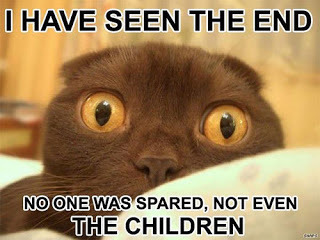date newest »
newest »
 newest »
newest »
message 1:
by
P.D.
(new)
Mar 13, 2011 07:49AM
 Have a Tums, and know that you aren't alone. I do this too.
Have a Tums, and know that you aren't alone. I do this too.
reply
|
flag
 Interesting post, K.Z. I've just finished reading "Precious Boy" and really loved it. However I noted one of the most frequent reasons reviewers marked it down was because they didn't like the fact Jon had sex with Donald and then turned around and had sex with Ethan.
Interesting post, K.Z. I've just finished reading "Precious Boy" and really loved it. However I noted one of the most frequent reasons reviewers marked it down was because they didn't like the fact Jon had sex with Donald and then turned around and had sex with Ethan.In other words for them it was a case of: "Wait. Hold on. I don't like what seems to be happening here. If the hero or heroine does this-and-such, it is really going to ruin this story's appeal for me."
Now I don't agree with those reviewers for a couple of reasons, firstly they conveniently forget the two had been lovers for a long time and it's quite believable that there is still a spark there.
Secondly, because at that stage he was still not willing to admit that the feelings he had for Ethan were sexual. And there were others, he was slightly drunk and possibly subconsciously wanting to drive the thought of the son out of his head.
So the motivation for getting together with Donald was not implausible (even if some of the readers were not sold on the fact).
The problem is therefore that those reviewers aren't looking at the story through Jon's eyes they are looking through their own.
Which is possibly different from your problem, as when you strike this sort of thing in other books, it's because you see that the writer has the whole logical motivation for actions wrong and the plot development is not in keeping with the character in the book.
Two totally different viewpoints, both arriving at dissatisfaction but for different reasons.
That's why as a writer, I like to get the reasons why someone doesn't like something, so I can determine if it's the personality of the character they're reacting to or whether I got my GMC correct.
 Hi, A.B.
Hi, A.B. Thanks for reading my novella. Reaction to the scene you mention has surprised me, too, especially since that brief encounter has no bearing (except in a positive way) on the actual outcome of the story. It's there for all the reasons you mention and more, and I'd like to think it adds some depth, complexity, and realism to Jon's character. But often, "realism" in a romance isn't everybody's cup of tea.
You explained the situation perfectly: many readers view character behavior through their own eyes, not the characters', and this is even more the case in a genre that comes with certain built-in expectations.
The novel I had in mind as I wrote my blog post had a whole different and more complicated set of issues (most relating to characterization across the board), and they ultimately led to a very unsatisfying ending.
Bottom line: when a story is published, it's in the public's hands. The writer's vision pretty much becomes irrelevant. It's the same with movies, art, music -- any "product" that's the result of creative rather than practical endeavor. Subjective judgments are inevitable.




